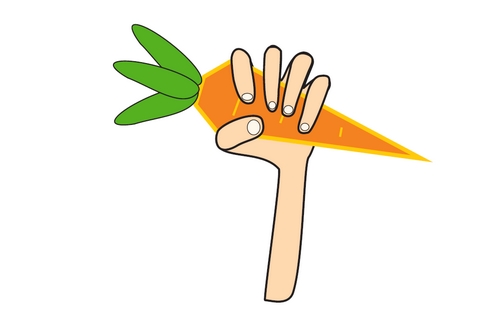The Future of Shopping

Introduction
How big is our power as consumers? It sometimes may appear that our consumer power only boils down to choosing the product which is best value for money, but just how true is this? In 2014, thanks to 272,000 people signing petitions and campaigning to urge food and beverage companies to respect community land rights, Pepsi agreed to zero land grabs! Similarly, in 2015 Nestle stated that it would cut artificial colours and flavours from Nestle Crunch and Butterfinger candy which came about directly as a result of consumer behaviour and pressure. It is amazing just how much power lies in our hands without even us realising it oftentimes - our choices as conscious consumers can bring about sweeping changes for ourselves, the environment and other people throughout the world. It is because you spoke that Pepsi listened. It is because you spoke, that Nestle listened.
This trend of speaking out and exercising our influence as conscious consumers has grown even stronger with the advent of social media. And as much as social media has been criticised for sharing foolish and trivial information, it has also given rise to substantive political reform. Social media gives space to share ideas and at the same time raise the awareness about irresponsible corporate behaviours.
In this activity we will explore the alternative shopping possibilities of organic, fair, ethical products etc. Joining any kind of group that shares our values expands possibilities to access the goods we look for and at the same time support the local economy.
Activity Type
Group / Experiential
Duration
2 - 4 hours
Learning Outcomes
To experience an alternative method of purchasing via concepts such as direct buying, ethical purchasing (fair-trade), buying in bulk, solidarity purchasing, community supported agriculture
To realise how unnatural and even harmful most other products are
Instructions
Step-by-Step Instructions:
Option A
Research the possibilities to use any of the below mentioned forms of purchasing in your local area:
direct buying (from local farmers, neighbours making jam etc.)
ethical purchasing
buying in bulk
solidarity purchasing
community supported agriculture (CSA) etc.
Join them, make friends and order a service of your choice to make a deal on one or more products.
Option B - if you cannot find any of the above-mentioned alternatives to mainstream purchasing:
Research the previously-mentioned concepts online (ethical consumerism, direct purchasing etc).
Think of a product or service that you would like to have. It should be ethical and ecological.
Find at least one friend who would like to join the purchase. The more friends that join, the more likely it is that you will manage to get an advantageous deal. You may try inviting friends - potential partners - for a cup of tea to discuss the deal or advertising the idea on Facebook or within your family.
Find a provider of a service / product, keeping in mind all the ethical and ecological aspects.
Discuss the deal’s terms and conditions with the provider. Try to achieve as much benefit as possible, compared to how you would acquire the product/service normally.
Enjoy your deal!
Tips for making an advantageous deal:
State that you represent a number of co-buyers, a bigger deal is generally a better deal!
The provider is more likely to offer a good deal if the purchase is likely to re-occur.
Be ready to collect the goods from the warehouse/site of the provider. Organise the logistics among your friends and co-buyers.
You can offer advertising the positive experience of the product / service as an exchange for beneficial terms and conditions.
Think of what, except money, you could offer in return!
Resources
Reflection
What was the deal you made?
How economically beneficial was the deal, both for you and for the group? Were you ready to spend more to support a certain project that would provide you with a specific quality or product (e.g. CSA) or that you can directly witness how it is helping other local groups in your community, especially poorer groups?
Did you witness how transformative and big our consumer power is and the positive change it can bring forth when we exercise it?
Did other projects pop up within your community context (if you gathered a group)?
What would you do differently next time?
Did the experience/open up new ideas and possibilities for shopping?
How do you see the potential of alternative purchasing in your life?
What role does the internet play in alternative purchasing?
Instructions for Submission
Upload 1 photo from your purchase and submit your written reflection, so that your peers can give you feedback. Instructions on how to upload photos and how to submit things in Moodle can be found here: Instructions on Submission&Uploading
Instructions for Assessment
Provide feedback to at least one participant that has done this activity. Instructions on providing feedback can be found here: Instructions on Feedback